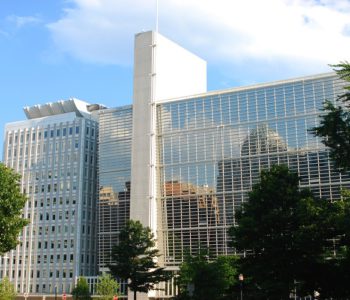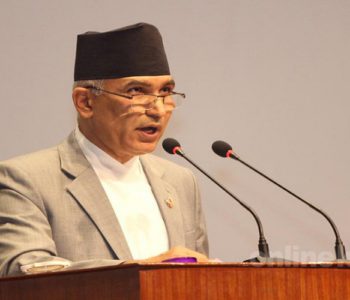South Asia’s growth outlook slashed amid global uncertainty, Nepal faces 4.5pc growth downgrade

KATHMANDU: South Asia’s economic growth prospects have dimmed, with the World Bank slashing the region’s 2025 growth forecast to 5.8%, a 0.4 percentage point drop from October projections, according to the latest South Asia Development Update: Taxing Times.
The report, released by the World Bank, cites global economic uncertainty and domestic vulnerabilities, including weak fiscal positions, as key challenges. Nepal’s growth forecast for FY24/25 has been downgraded to 4.5%, driven by flood and landslide damage, with a projected rise to 5.2% in FY25/26 hampered by persistent financial system weaknesses.
The World Bank warns that South Asia’s limited fiscal buffers, strained by low tax revenues averaging 18% of GDP (compared to 24% for other developing economies), leave the region vulnerable to shocks. “Low revenues are at the root of South Asia’s fiscal fragility and could threaten macroeconomic stability,” said Franziska Ohnsorge, World Bank Chief Economist for South Asia.
The report estimates tax revenues in the region are 1 to 7 percentage points below potential, driven by widespread informality, large agricultural sectors, and weak tax administration.
In Nepal, the downgrade reflects the economic toll of natural disasters and ongoing financial sector challenges.
Across the region, growth forecasts have been revised downward for most countries:
Afghanistan: 2.5% growth in FY24/25, slowing to 2.2% in FY25/26 amid declining aid.
Bangladesh: 3.3% in FY24/25 due to political and financial challenges, with a rebound to 4.9% in FY25/26.
Bhutan: 6.6% in FY24/25, impacted by weak agriculture, but rising to 7.6% in FY25/26 with hydropower gains.
India: 6.5% in FY24/25, easing to 6.3% in FY25/26 due to global economic weakness.
Maldives: 5.7% in 2025, supported by tourism infrastructure but at risk from external debt.
Pakistan: 2.7% in FY24/25, improving to 3.1% in FY25/26 as recovery continues.
Sri Lanka: 3.5% in 2025, driven by debt restructuring and investment, before settling at 3.1% in 2026.
To bolster fiscal resilience, the World Bank urges South Asian nations to boost domestic revenue through streamlined tax codes, reduced exemptions, and digital tools for better compliance. Pollution pricing is also recommended to address environmental challenges while raising funds.
“Targeted reforms are critical to address fragile fiscal positions and climate-related shocks,” said Martin Raiser, World Bank Vice President for South Asia.
For Nepal, strengthening tax collection and addressing financial system weaknesses will be key to mitigating the impact of natural disasters and global uncertainties, as the country strives to achieve sustainable growth in an increasingly volatile economic landscape.











Facebook Comment